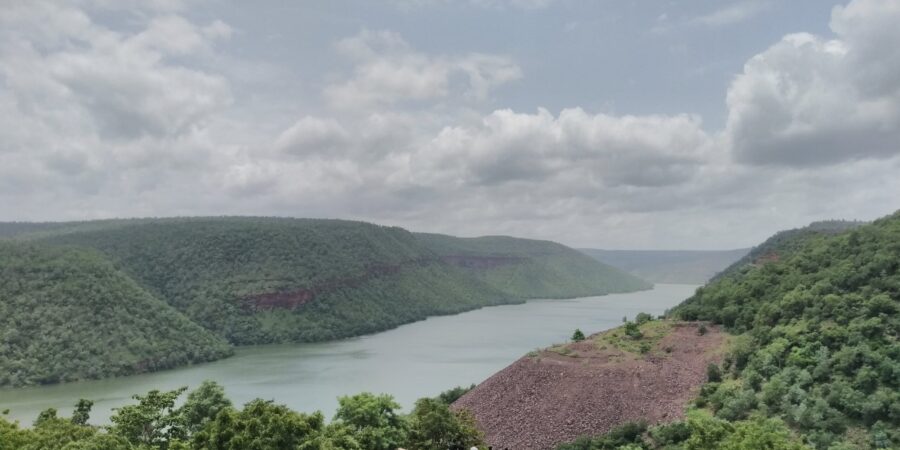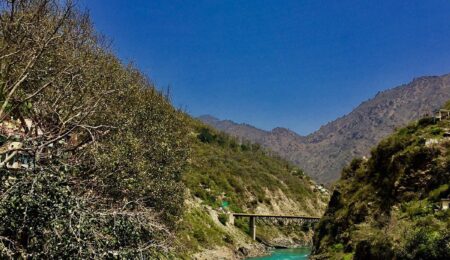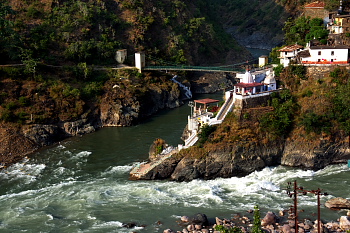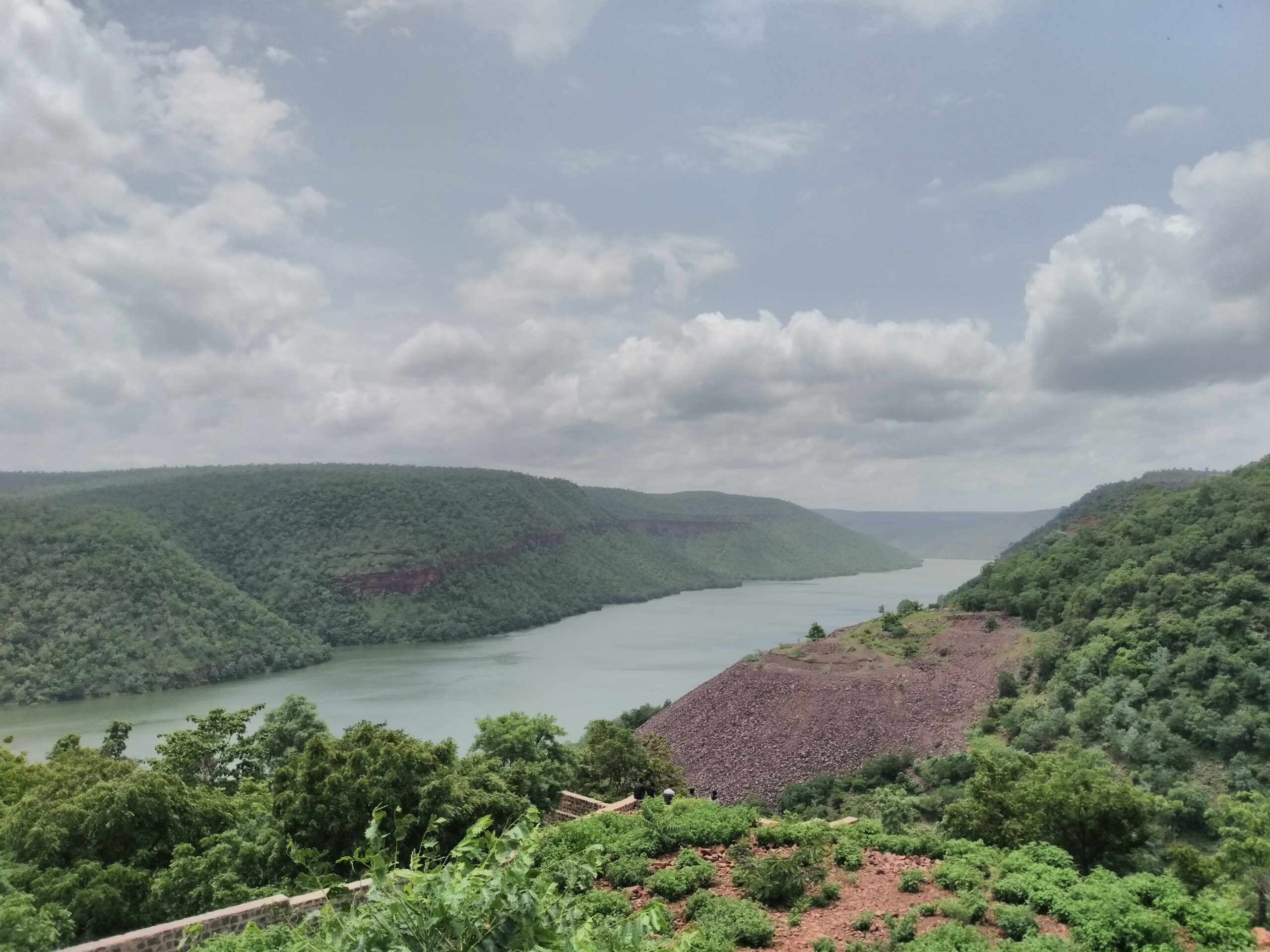 Flowing through the enchanting landscapes of South India, the Krishna River holds immense religious, cultural, and historical significance. Originating from the Mahabaleshwar hills in Maharashtra, this holy river embarks on a majestic journey, meandering through the states of Maharashtra, Karnataka, and Andhra Pradesh before finally merging into the Bay of Bengal. With its serene flow, picturesque surroundings, and deep-rooted spirituality, the Krishna River has been a lifeline for millions of people for centuries.
Flowing through the enchanting landscapes of South India, the Krishna River holds immense religious, cultural, and historical significance. Originating from the Mahabaleshwar hills in Maharashtra, this holy river embarks on a majestic journey, meandering through the states of Maharashtra, Karnataka, and Andhra Pradesh before finally merging into the Bay of Bengal. With its serene flow, picturesque surroundings, and deep-rooted spirituality, the Krishna River has been a lifeline for millions of people for centuries.
The Krishna River derives its name from Lord Krishna, one of the most revered deities in Hinduism. According to ancient texts and mythology, Lord Krishna is believed to have spent his childhood and early youth in the region surrounding the river, which adds to its sacred status. The river is associated with numerous stories and legends, enhancing its spiritual significance and cultural heritage.
The river Krishna flows through the states of Maharashtra, Karnataka, Telangana and Andhra Pradesh. It is one of the longest rivers in India and one of the major rivers of the Deccan Plateau. The river is named after Lord Krishna, who is said to have been born on its banks. The river has great religious and historical significance. It is said to be where Lord Krishna performed many of his miracles. The river is also said to be the site of the battle between the Pandavas and the Kauravas and the place where Lord Krishna gave the famous Bhagavad Gita speech to Arjuna.
The river is also important for irrigation and water supply. The river basin is home to some of the most fertile land in India, and the river is used for irrigation in many parts of the country. The river is also a popular tourist destination. The banks of the river are home to many temples and other religious sites. The river is also popular for its scenic beauty, and many people visit it for its natural beauty.
The river Krishna is one of the most sacred rivers in India. It is said to have been created by Lord Krishna himself, and it is believed that bathing in the river will cleanse one’s soul. The river is also said to be the site of many miracles performed by Lord Krishna.
The river Krishna flows through the states of Maharashtra, Karnataka, Telangana and Andhra Pradesh. It is one of the longest rivers in India and one of the major rivers of the Deccan Plateau. The river is named after Lord Krishna, who is said to have been born on its banks.
The Krishna River basin has been a cradle of ancient civilizations and a cultural and economic growth centre. The region along the riverbanks is dotted with ancient temples, palaces, and architectural marvels that stand as testaments to the land’s rich history and cultural heritage. The famous Vijayanagara Empire, known for its architectural splendour and patronage of arts and culture, flourished near the Krishna River.
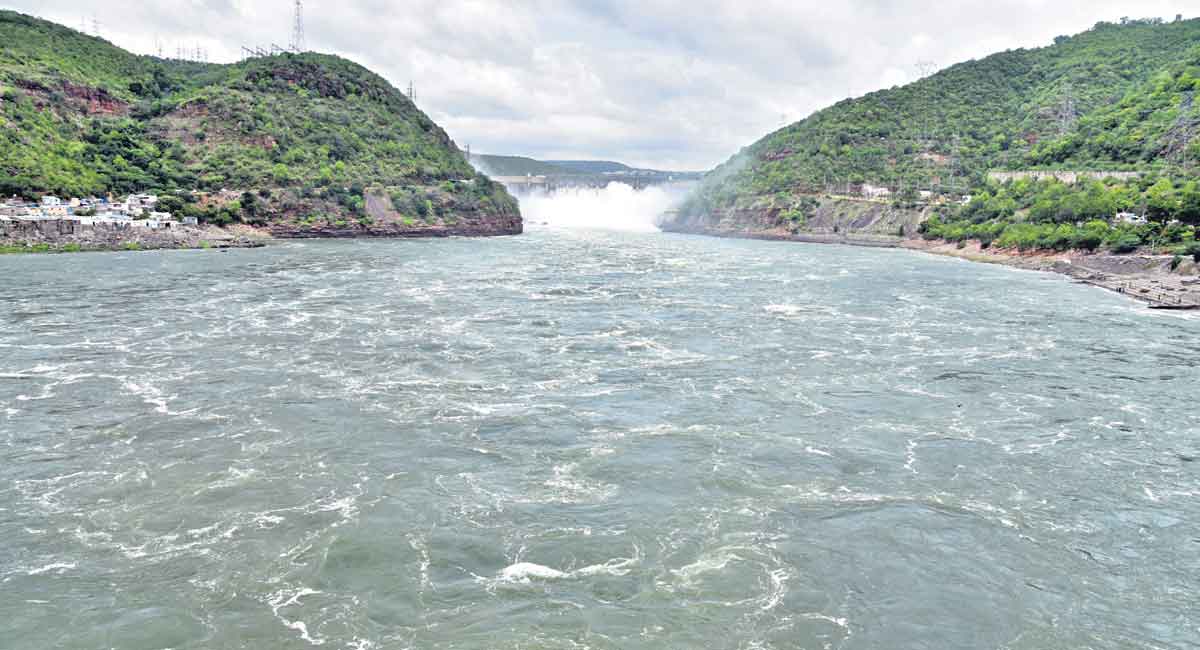 The Krishna River is also closely associated with the life and teachings of the philosopher-saints of the Bhakti movement. The riverbanks have been the abode of numerous renowned saints and poets who found inspiration and solace in the river’s tranquil ambience and divine energy. Their devotional compositions and hymns dedicated to Lord Krishna resonate along the riverbanks, creating an atmosphere of spirituality and devotion.
The Krishna River is also closely associated with the life and teachings of the philosopher-saints of the Bhakti movement. The riverbanks have been the abode of numerous renowned saints and poets who found inspiration and solace in the river’s tranquil ambience and divine energy. Their devotional compositions and hymns dedicated to Lord Krishna resonate along the riverbanks, creating an atmosphere of spirituality and devotion.
Pilgrimage along the Krishna River is an integral part of the religious and cultural fabric of the region. The river is revered as a goddess and is worshipped in temples dedicated to her. One of the most famous pilgrimage sites along the Krishna River is the city of Vijayawada in Andhra Pradesh, where the Kanaka Durga Temple stands atop the Indrakeeladri Hill. This temple attracts devotees from far and wide, especially during the annual festival of Navratri, when the riverbanks come alive with fervent devotion and celebrations.
The Krishna River is also associated with the Krishna Pushkaram, a grand festival that occurs once every twelve years. This festival is a celebration of the river’s auspicious entry into various zodiac signs, and it draws millions of pilgrims who converge along the riverbanks to take a holy dip, offer prayers, and seek blessings. The Krishna Pushkaram is a time of vibrant festivities, devotional rituals, cultural performances, and spiritual rejuvenation.
Besides its religious and cultural significance, the Krishna River plays a vital role in the region’s agriculture and economy. The fertile soil along its banks and abundant water resources support extensive agriculture, including cultivating rice, sugarcane, and various fruits and vegetables. The river’s water is harnessed for irrigation purposes, contributing to the region’s agricultural productivity.
However, like many other rivers in India, the Krishna River faces various challenges, including pollution, deforestation, and water disputes among different states. These issues threaten the river’s ecological balance, water quality, and the sustainability of its resources. Efforts have been made to address these challenges by implementing river conservation projects, water management initiatives, and awareness campaigns. The Government of India has launched the National Mission for Clean Ganga (NMCG) to clean the river. Several NGOs and grassroots organizations are working to create awareness about the need to protect the river. In Karnataka, the government has launched the Krishna River Restoration Project, which aims to rejuvenate the river and improve its water quality.
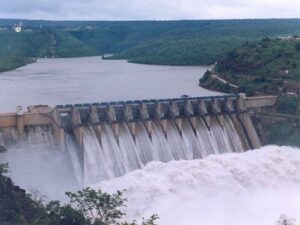 Visiting the Krishna River offers a unique experience, combining spirituality, natural beauty, and cultural heritage. The peaceful surroundings, the gentle river flow, and the temples’ serenity create an atmosphere of tranquillity and devotion. Taking a holy dip in the sacred waters of the Krishna River is believed to purify the soul and bestow blessings upon devotees.
Visiting the Krishna River offers a unique experience, combining spirituality, natural beauty, and cultural heritage. The peaceful surroundings, the gentle river flow, and the temples’ serenity create an atmosphere of tranquillity and devotion. Taking a holy dip in the sacred waters of the Krishna River is believed to purify the soul and bestow blessings upon devotees.
In conclusion, the Krishna River is much more than a waterway; it symbolizes devotion, cultural heritage, and the nurturing power of nature. For centuries, it has been a source of spiritual inspiration, economic sustenance, and cultural vibrancy. As we cherish the sanctity of the Krishna River, let us strive to protect its purity, preserve its ecological balance, and uphold the values of reverence and gratitude for this sacred lifeline that nourishes both the land and the souls of the people.


